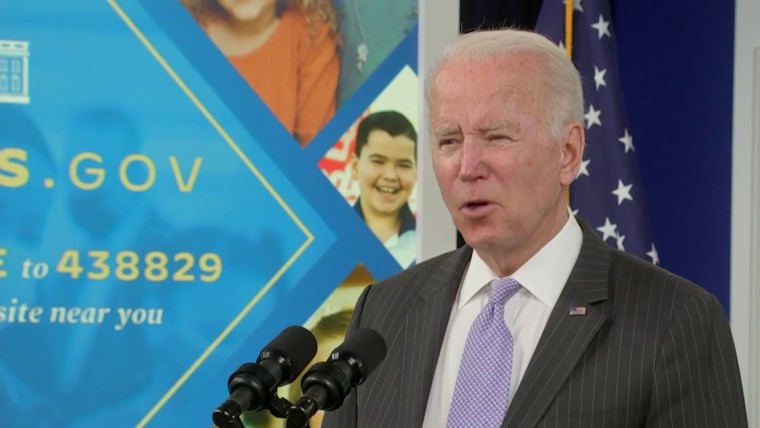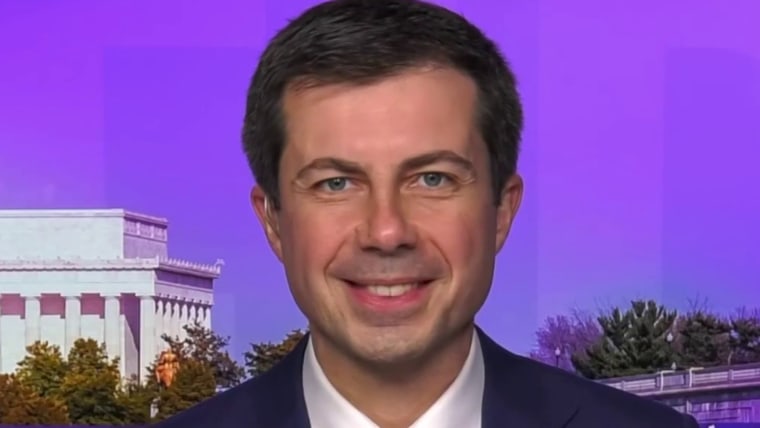The infrastructure law, which Congress passed with bipartisan support, allocates money to states through a combination of grant and formula funding.
The Biden administration has very little say in how states spend funding from the formula, which is based on a mathematical calculation that takes into account factors like states’ population sizes.
States can pick and choose how to spend funds from the formula, prioritizing whichever projects they desire. Money often goes to more traditional projects — such as expanding roadways to make room for more cars — that could undermine some of the Biden administration’s goals on climate and equity.
The Biden administration has more influence when it comes to the grant funding.
The infrastructure law includes dozens of competitive grant programs — many of them brand new — which require state and local governments to submit applications to federal agencies, including the Transportation Department.
The Transportation Department can create its own criteria to evaluate and award grants, giving states incentives to request funding for projects that emphasize equity and sustainability. Hundreds of applications are usually submitted for such grants, and only a small percentage are awarded funding.
“This bill has a lot more discretionary spending than we’re normally used to for transportation,” said Susan Howard, the program director for transportation finance at the American Association of State Highway and Transportation Officials. “That’s where I think we’ll see a lot of the administration’s priorities come into play when it comes to things like climate and equity.”
Still, not every state will share the Biden administration’s goals on issues like racial equity.
Republican Gov. Ron DeSantis of Florida, a frequent Biden critic, told reporters this month that Buttigieg’s call for equity was some “weird stuff.”
“To me, a road’s a road,” DeSantis said.
While it could make the state’s application less competitive, DeSantis could decide not to prioritize equity or sustainability in Florida’s grant proposals.
He could choose not to apply for some grants altogether — a move that would leave voters in Florida, a politically important state, with no benefits from the bill.
The federal government is not required to spend the grant money, and there is some precedent for governors’ walking away from large sums of federal transit funding.
During President Barack Obama’s first term, a number of Republican governors turned down federal funding to build networks of high-speed rail. The showpiece of the initiative was supposed to be a high-speed link between Tampa and Orlando, Florida, but then Gov. Rick Scott rejected $2 billion from the federal government, and the project was never built.
There are some signs that Republicans, including DeSantis, might not do that this time around as they try to balance their political desire to criticize the Biden administration with the public’s overwhelming support for investments in infrastructure.
Despite his criticism of the administration’s focus on equity, DeSantis has complained that Florida should have actually gotten more money from the infrastructure bill. Rep. Gary Palmer, R-Ala., who voted against the infrastructure bill, has touted it back home, telling his constituents that it will finally allow Alabama to complete a critical road project.
Adie Tomer, a senior metropolitan policy fellow at the Brookings Institution, said that Republicans like DeSantis can take projects to the Transportation Department that do not reflect the administration’s goals but that they do so at their own peril.
“If Florida doesn’t want to apply for projects that would reflect the spirit of those competitive programs, then that’s Florida’s loss,” Tomer said. “He could lose anyways. But if you don’t apply, you certainly can’t win.”
Mike Memoli contributed.
Source: | This article originally belongs to Nbcnews.com












